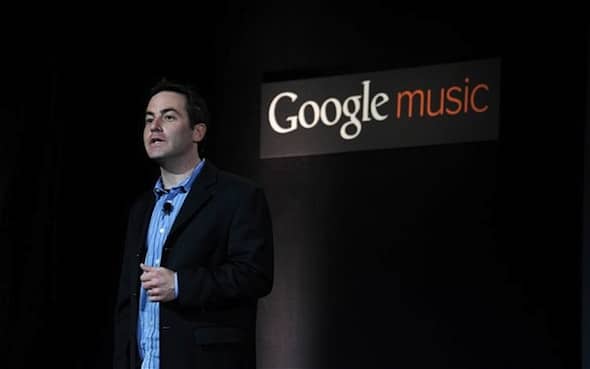Google has finally brought their Google Music service out of beta and last night they officially launched the new music service in the US. While it's not available outside the US, we're going to take a in-depth look at what Google has planned to try and compete with iTunes and other music services like Spotify.
It represents quite a departure for the search engine giant. They’ve always positioned themselves as a middle man, but yesterday’s announcement see’s them go head to head with the myriad of other mp3 music stores and Apple’s iTunes. But, does it offer anything new that’s really worth getting excited about? Well if you are a Android user, being able to buy music direct from your phone will be a welcomed one.
The Cloud
One of the features of Google music is the ability to use the service within the cloud, now, this is nothing new, Apple's has its own version of this and similar to Apple’s service users will be able to store and stream 20,000 songs from your own collection or bought through the new music store. You'll be able to access your music through your phone, desktop or tablet via streams or you'll be able to download them direct to your device.
Music Hub
To upload your collection to the service you will need to use the music hub software, which will allow you to add songs to your cloud locker – even if its spread across several computers. Our main gripe is who has the time or patience to upload 20,000 tracks to anything, with UK upload rates it would take ages for the average punter. Maybe in a couple of years this will be the future, but Cloud services sound better in theory than in practice.
Google Music App
To access your music, you'll need to download the Google Music app, this will allow you to access your cloud as well as download music back to your device, you'll need an Android phone running 2.2 and have the latest version of the Android Market place.
Google's Android market place will now sport a section where users will be able to buy music like you would on iTunes. Google has got three out of the four major labels on board as well as deals with 1,000’s of independent labels. Tracks will cost the standard cost of a track: around 99p and you'll be able to get the tracks in full Mp3 320 quality and DRM free – something iTunes doesn't offer. You'll be able to preview tracks for 90 seconds and you will be given a free song a day. Whether you get to choose it or it's chosen for you remains unclear.
Google + Integration
Google has big plans for intergration with its newly launched Google + social network. They are planning to share your purchases with people who are in your circles, and better still, your friends will be able to listen to track in full once, and if you buy an album they'll be allowed one full play of the album too, which is a very clever idea and will no doubt increase Google Pluses use too.
Artist Hub
Another interesting concept that Google has come up with is the artist hub – a new way for artists to sell their own music. In a similar way to the App store, it cuts out the middle man. Artists or smaller labels will be able to set up their own page, dictate the price of the release, and will bank 70% of the revenue generated. Essentially it's Google's own version of Bandcamp. The artist will be given full control on what sort of previews they want and if it takes off could be a revolutionary change for the industry. Its been done before, but with Google’s exposure and marketing budgets could become the future distribution network for smaller, more niche independent labels.
Google will look to woo the music buying public with some exclusive content, these will include exclusive live concerts from the Rolling Stones, Busta Rhymes debuting his new studio album on Google Music, plus free live albums from Coldplay, Shakira, Pearl Jam and Dave Matthews Band.
Missed Opportunity
But, has Google missed a massive opportunity, well, according to some it is has, an independent music analyst Mark Mulligan, formerly of Forrester Research, said: "Google for so many people is the junction of their digital lives. The company was expected to create a much more imaginative service than just a simple download store and digital locker system," he told The Telegraph.
"It could have offered a music service bundled into an Android device. A deeper embedding of a more unique music service into Android-powered mobile handsets would have been far better than its current offering, as it could have created a seamless journey between people's phone and music collection - like Apple's offering does."
Mulligan also thinks Google missed the chance to create digital music service which could have traded on the company's search dominance.
"I thought Google Music was going to be a product which joined the dots of digital music in one place. Look at how much Facebook achieved at f8 [with partnership deals with the likes of streaming services Spotify and Deezer] without a single record label licensing deal in place. Most people start their digital music journey with the Google search bar and Google Music doesn't reflect this."
Conclusion
From early impressions Google has pretty much copied the iTunes model, with some refreshing additions, we like the idea of being able to share purchases and the artist hub. They’ve now got to get the same deals sorted in Europe and the rest of world. There’s no doubt it will succeed, purely down to the sheer number of Android handsets out there, but those of you who thought it might change the world of music forever will be a bit disappointed. But it’s early days so we can’t judge just yet.

